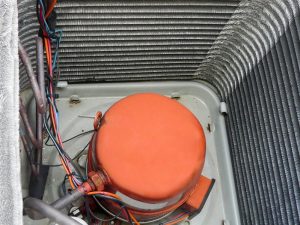The compressor is the heart of the AC, responsible for the circulation of refrigerant that allows the unit to move heat from inside your home and deposit it outside. The powerful and complex device can’t be easily repaired if it fails. When a compressor dies, professionals will need to replace it. Because of the cost of a compressor, it’s usually more cost-effective to replace the entire AC instead.
To help you know when you’ve got a compressor in trouble so you can possibly avoid an early air conditioning replacement in Panama City, FL, we’ll list warning signs to watch for that you’ve got a compressor that’s in trouble.
1. Reduced Cooling Capacity
One of the first signs of a failing compressor is a noticeable reduction in the cooling power of your air conditioner. If you find that your AC is running longer than usual or struggling to maintain the set temperature, the compressor might be failing to circulate the refrigerant effectively. This could be due to a variety of issues within the compressor itself, such as worn-out parts or refrigerant leaks.
2. Strange Noises
While the AC unit typically makes a low, steady noise during operation, unusual sounds such as rattling, grinding, or clunking can indicate a problem with the compressor. These noises often suggest that internal components have come loose or are beginning to break down. Ignoring these sounds can lead to more severe damage, potentially resulting in a complete compressor failure.
3. Hard Starting
A compressor in good condition should start smoothly every time your AC cycles on. If you notice that your AC unit is struggling to start, experiencing delays, or requires multiple attempts to kick on, this could be a sign of a dying compressor. This issue, known as hard starting, indicates that the compressor is having difficulty engaging and may soon fail entirely.
4. Tripped Circuit Breaker
Your AC compressor requires a significant amount of power to run. If it is malfunctioning, it can draw too much electricity and trip the circuit breaker. If you find that your circuit breaker is frequently tripping when the AC is on, it’s a sign that the compressor is overloading the electrical system, which needs immediate attention to prevent further damage or safety hazards.
5. Warm Air from Vents
When the compressor fails, it can no longer effectively pump refrigerant through the system. As a result, you might notice warm air blowing from your vents instead of the cool air you expect. This is a clear sign that the refrigerant cycle has been disrupted, often due to compressor issues.
6. High Energy Bills
A failing compressor can cause your AC to work harder and run longer to achieve the desired cooling effect, leading to increased energy consumption. If you notice a sudden spike in your energy bills without a corresponding increase in usage, your AC compressor might be the culprit. Keeping an eye on your energy bills can provide early clues about potential problems with your AC system.
7. Leaking Refrigerant
While refrigerant leaks can occur in various parts of the AC system, a significant leak near the compressor often indicates a serious problem. If you notice refrigerant pooling around your unit or a sudden drop in cooling efficiency, it could mean that the compressor’s seals are failing.
Taking prompt action can save you from the inconvenience and cost of an unexpected AC replacement—call our Peaden Pros to help you out.
Call today to discover The Peaden Way: Service Is Our Passion, Safety Is Our Priority, Satisfaction Is Our Promise.

